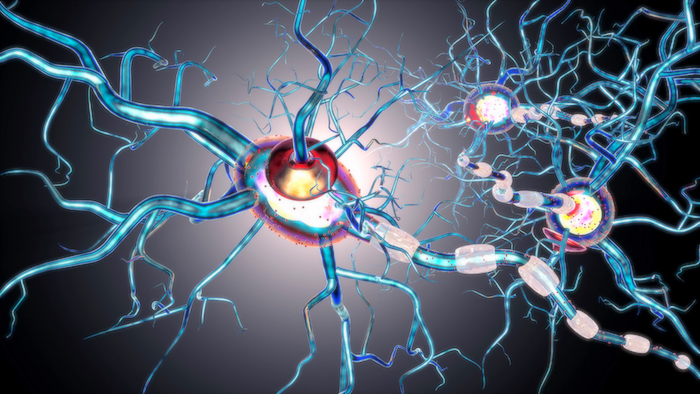Results of a new clinical drug trial offer much-needed hope for people living with multiple sclerosis (MS) — a neurological condition that affects primarily women and has limited treatment options. The results of the trial, published in the New England Journal of Medicine, suggest that the drug, Idudilast, can effectively slow down brain atrophy, or shrinkage.
Multiple sclerosis (MS) is an autoimmune condition that affects the central nervous system. In MS, the immune system does not recognize the protective sheath of myelin that surrounds the nerve cells and attacks it. This damages nerve cells, causing symptoms such as muscle weakness, numbness, chronic pain, and coordination problems, among others.
In the United States, approximately 1 million people are living with MS, according to the most recent estimates. Worldwide, 2.3 million people have the condition.
Brain atrophy is one of the hallmarks of this neurodegenerative condition and a good predictor of how the disease will progress. Higher rates of brain shrinkage have been shown to correlate with worsening symptoms in people with progressive MS.
MS does not yet have a cure, and treatment options that can slow the progression of the disease are limited. A new clinical trial proposes the drug ibudilast as a new treatment candidate that can slow down the atrophy of the brain.
Dr. Robert J. Fox, a neurologist at the Cleveland Clinic in Ohio, led the randomized trial, which compared the drug with a placebo in 255 participants.
Dr. Fox and his team randomly assigned participants to either a group that received a daily dose of up to 10 capsules of ibudilast or to one that received a placebo. The trial lasted for 96 weeks, and brain volume of the participants was measured every 6 months using MRI.
Overall, the trial showed that the drug reduced the rate of brain shrinkage. On average, those in the placebo group lost 2.5 milliliters more brain volume than those who took the drug. The average volume of the adult human brain is 1,300–1,500 milliliters.
However, there are caveats to these results; the researchers do not know whether the reduction of brain shrinkage translated into improved symptoms or better function.
The most widely reported side effects were gastrointestinal problems, headaches, and depression.
Dr. Fox commented on the new findings, saying, “The trial’s results are very encouraging and point toward a potential new therapy to help people with progressive MS. The trial also increased our understanding of advanced imaging techniques, so that future studies may require a smaller number of patients followed over a shorter period of time.”
“This leads to increased efficiency of clinical research,” he says. “These imaging methods may also be relevant to a host of other neurological disorders.”
The National Institute of Neurological Disorders and Stroke supported the research. Dr. Walter J. Koroshetz, its director, also weighs in on the significance of the trial. “These findings provide a glimmer of hope for people with a form of multiple sclerosis that causes long-term disability but does not have many treatment options.”
Source: Phase 2 Trial of Ibudilast in Progressive Multiple Sclerosis, NEJM
















[…] Source — healthifitnesstips.com […]
[…] Source […]
[…] Source — site-health.com […]
[…] New Treatment for Multiple Sclerosis Reduces Brain Shrinkage by 50 Percent This entry was posted in Stem Cell Therapy for Specific Conditions. Bookmark the permalink. […]
[…] https://nutritionreview.org/2018/09/new-treatment-for-multiple-sclerosis-reduces-brain-shrinkage-by-… […]
[…] Nutrition Review (2018, Sep 9). New Treatment for Multiple Sclerosis Reduces Brain Shrinkage by 50 Percent. Nutrition Review. Retrieved from:https://nutritionreview.org/2018/09/new-treatment-for-multiple-sclerosis-reduces-brain-shrinkage-by-… […]